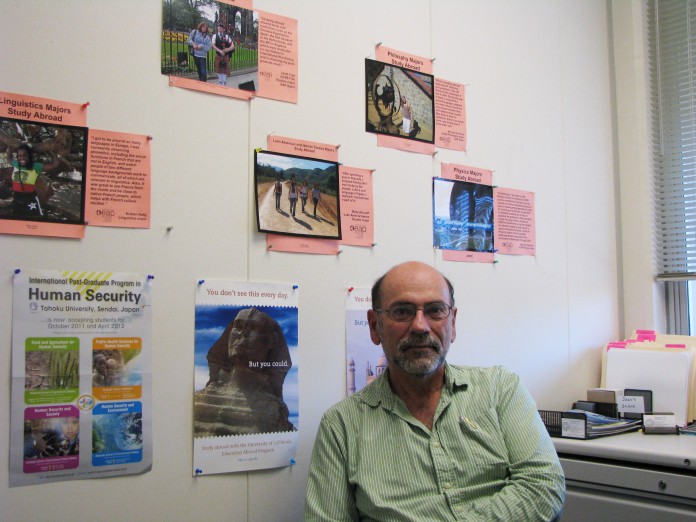
Arturo Samaniego
National Beat Reporter
Massive cuts may come soon to the University of California Office of the President alongside the movement of some UC-wide programs to individual UC campuses, if suggestions made in an outside review are followed.
Huron Consulting Group authored the review and called for streamlining UCOP, “in what could amount to a 50% budget reduction,” according to The Los Angeles Times.
Although the review found that the UC office is “relatively lean,” the review still made suggestions on how the UC can cut back on its operations. One suggestion involved cutting $50 million from UCOP’s $833 million budget and eliminating 110 out of 1,790 positions. Another suggestion called for just $42 million in cuts and the elimination of 99 positions.
For the review to achieve a step towards budget reductions, UC-wide programs would need to move to individual UC campuses. Possible movements include moving University of California Press, headquartered in Oakland, Calif., to University of California, Los Angeles (UCLA), the Agricultural and Natural Resources division, headquartered in Davis, Calif., to University of California, Davis, and the UC Education Abroad Program (UCEAP) to UCSB.
UCEAP is already affiliated with UCSB EAP, and the two programs share IT and human resources departments. The system-wide office is currently located in Goleta, on Hollister Avenue.
UCSB Religious Studies Professor Juan Campo, Campus Director of UCSB EAP, stated that the proposal for UCSB to completely absorb UCEAP is “really a ridiculous thing to be considered.”
“There is very little expense to the system-wide office to begin with, the UCEAP office funds itself pretty much,” Campo said. “It’s pretty much a self-operating institution so whatever budgetary benefits that incorporating UCEAP into [UCSB] would be minimal if any.”
Campo also expressed concern over the future of EAP if it were incorporated into UCSB. “There is a sense to have it completely absorbed by UCSB would be a way of killing it, most other UC campuses would consider EAP to be only a UCSB institution and are not likely to encourage their own students to take programs in it,” Campo said.
Campo emphasized that a decline in support from UC campuses for EAP would lead to a massive drop in enrollment for the program, eventually ending it altogether.
According to statements made to the Los Angeles Times, UC President Janet Napolitano claims the review was commissioned in order to find the most efficient way to run UCOP and to also address political pressures. These pressures included calls for cuts to the UC system made by Governor Jerry Brown and criticism UCOP faced after a state audit in April 2017.
This audit revealed that UC administration withheld $175 million in budget reserve funds, and these funds stemmed from UCOP’s budget.
“I do not think UCSB has the capacity to have all the administration and officials connected to UCEAP relocated onto the UCSB campus, there is simply not enough space,” Campo said about UCSB’s ability to absorb EAP.
One final point of concern for Campo was how UC students would enroll in EAP if UCSB absorbed it. “As I understand if EAP is absorbed by UCSB then any non-UCSB students who want to study abroad on EAP would have to be registered at UCSB and then have their units transferred back to their home campus once they come back,” Campo said.
Campo claims this would result in an increased difficulty to process paperwork. Currently, students enrolled in EAP obtain units directly from the program and transfer them back to their home campus.
“Housing EAP at UCSB would put stress on UCSB’s infrastructure and would become unsustainable over time,” Campo said.
Campo said that UCEAP receives $200,000 from the UC and could sustain a loss of that amount if UCOP decides to cut those funds.
“UCEAP is a multi-million dollar operation, it would not hurt if it lost that revenue,” Campo said. “What would kill it and what would really hurt it is if it was obliged to be absorbed by UCSB.”










